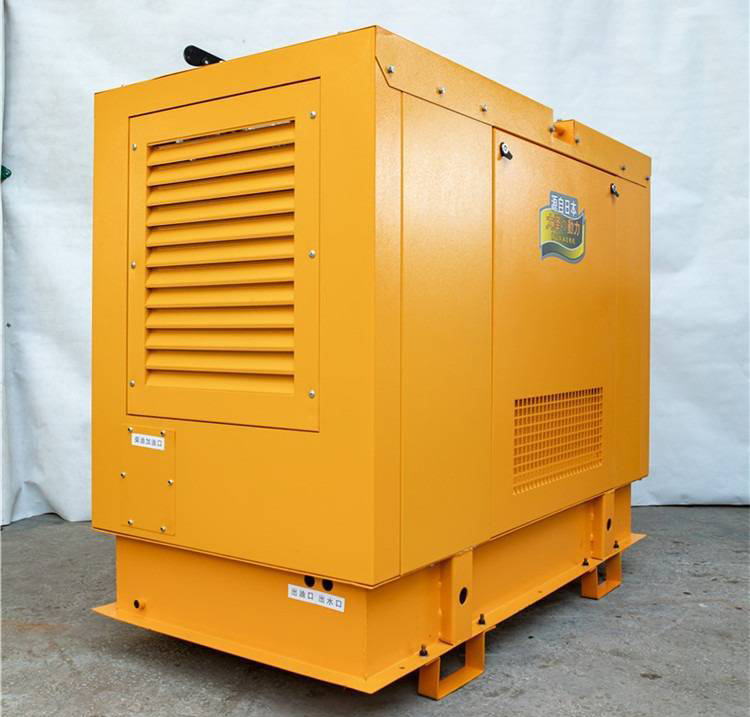Global Standby Power Buying Guide: 5 Key Factors for Choosing a High-Quality Generator Set
Release time:2025-08-22 Click:31
In today’s interconnected world, reliable power supply is no longer a luxury—it is a necessity. Whether for hospitals, data centers, factories, or commercial complexes, unexpected blackouts can lead to financial losses, operational downtime, and even risks to human safety. This is why standby generator sets are widely used across industries and international markets.
However, choosing the right generator set for your project or business is not as simple as comparing price tags. Buyers must evaluate performance, durability, and long-term cost efficiency. This guide outlines the five key factors global buyers should consider when sourcing a high-quality generator set, particularly from international manufacturers.
The first step in generator selection is to determine power requirements. An undersized generator may trip frequently and fail under heavy load, while an oversized one may waste fuel and increase operating costs.
Rated Power (kVA/kW): Choose a generator that matches or slightly exceeds your maximum load demand.
Prime vs. Standby Power: Prime power is for continuous operation, while standby power covers emergency use. Make sure you know which rating applies to your needs.
Load Characteristics: Industrial equipment such as motors or compressors may require higher starting capacity (surge load).
Tip: Ask your supplier for load calculation support to avoid costly mismatches.
The engine is the heart of a generator set. High-quality engines ensure stable performance, fuel efficiency, and long service life. Leading international brands such as Cummins, Perkins, MTU, and Volvo Penta are widely recognized. Chinese manufacturers increasingly adopt engines from these brands or produce competitive alternatives that meet international standards.
Fuel efficiency per kWh: Impacts operational costs.
Emissions compliance: Check if the unit meets EU Stage III/IV or US EPA Tier standards for your target market.
Maintenance requirements: Availability of parts and service networks ensures less downtime.
Proven reliability: Look for references from similar industries or global buyers.
While the engine generates mechanical power, the alternator converts it into stable electrical power. Poor alternators can result in unstable voltage, damaging sensitive equipment.
Alternator Brands: Stamford, Leroy Somer, and Mecc Alte are recognized globally.
Voltage Regulation: Look for AVR (Automatic Voltage Regulation) for consistent output.
Control Panel: Modern digital controllers offer remote monitoring, automatic transfer switch (ATS) integration, and fault diagnostics.
Smart Features: In global projects, IoT-enabled controllers allow real-time tracking of performance across borders.
For export buyers, easy-to-use multilingual control systems add extra value.

Operational efficiency and compliance with local regulations are crucial for long-term use.
Fuel Type: Diesel generators are the most common due to reliability and efficiency, though natural gas and hybrid models are also growing.
Noise Reduction: Look for canopied or containerized silent gensets with soundproofing materials. Many projects require compliance with local noise restrictions.
Emissions Standards: Meeting EPA, CE, or other regional regulations avoids legal and customs issues.
Eco-Friendly Features: Some advanced gensets include low-emission engines and can be adapted for biodiesel.
Tip: When exporting, confirm the destination country’s emission and noise requirements before ordering.
One of the most overlooked but critical aspects of generator procurement is lifecycle support. A lower upfront price may result in higher operating costs if service and parts are difficult to obtain.
Spare Parts Availability: Ask if the supplier provides a parts kit or local stocking solutions.
Warranty Terms: Standard warranties are 1 year or 1000 hours, but many manufacturers offer extended coverage.
Technical Support: 24/7 customer service, online troubleshooting, and global dealer networks increase confidence.
Total Cost of Ownership (TCO): Factor in fuel consumption, maintenance intervals, and resale value—not just purchase cost.
Reliable suppliers will provide detailed lifecycle cost analysis to help buyers make informed decisions.
When sourcing generator sets internationally, buyers should also evaluate:
Compliance Certificates: ISO 9001, CE, EPA, or other regional certifications.
Logistics & Packaging: Containerized packing reduces transport damage.
Customization: Options for parallel operation, automatic start/stop, remote monitoring.
Payment & Warranty Terms: Transparent contracts and technical documentation.
As a Chinese manufacturer, we emphasize global compatibility, offering flexible voltage/frequency configurations (50Hz or 60Hz), customizable enclosures, and multilingual manuals to meet the needs of diverse markets.
Define your total power requirement (kVA/kW).
Confirm emissions and noise regulations in your country.
Choose a trusted engine and alternator combination.
Review control system features (remote monitoring, ATS).
Ask for warranty, spare parts, and service plans.
Having a structured checklist avoids miscommunication and speeds up procurement.
The global demand for reliable backup power is rising, and choosing the right generator set is a critical investment for any business or project. By focusing on the five key factors—power output, engine quality, alternator performance, fuel efficiency, and after-sales service—buyers can secure long-term performance and cost savings.
For international buyers, working with an experienced Chinese manufacturer offers advantages in competitive pricing, flexible customization, and export-ready solutions. With the right supplier, you can ensure continuous, reliable power for projects worldwide.
Hot products
+86 15244567972
Contacts:Jack
